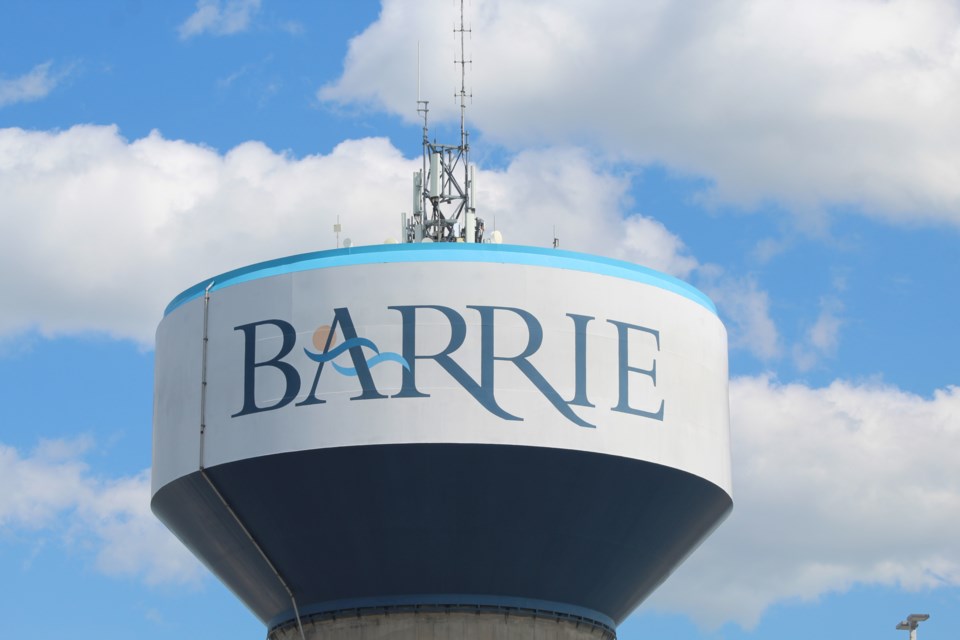Staying hydrated at city parks and drying up the disposable plastic bottle market in Barrie could go hand-in-hand.
City staff will look into establishing water bottle fill-up stations with municipal water at all parks, while eliminating plastic bottles at municipal and city-sanctioned events by 2023.
“We need to think more globally and act locally. This is a need, not a want,” said Coun. Mike McCann, who proposed the plan. “I am not a politician that likes to expose problems without providing feasible solutions.
“No one should question the integrity of this initiative in 2021," he added.
To this point, there is no cost or budget for McCann’s plan.
Barrie has around 120 parks of approximately 740 total acres.
The Ward 10 councillor also wants to track costs, promote how many plastic bottles have been saved by using the fill-up stations, market sponsorship opportunities to promote non-plastic water bottles, and investigate the feasibility of having the stations available year-round, versus April until October.
“I would like to eliminate single-use plastic water bottles in Barrie,” McCann said. “This will be a process with some pain involved by consumers and retailers. I would like to soften the impact and toughen the restrictions… leading up to a full city ban on the sale of any single-use plastics from retailers, excluding hospitals and/or medical usage.
“Furthermore, I would like the city to digitally track all usage and provide data on how many plastic water bottles we have eliminated each year," he said.
Single-use plastics include various plastic packaging and products designed or intended to be used once and then disposed, including recyclables. They are most prevalent in the food-service sector and include straws, takeout containers, cutlery and water bottles, but can also include chip bags, granola bar wrappers and other food preservation packaging and plastic bags.
Earlier this year, the first step was taken in shelving single-use plastics in Barrie. Councillors approved a motion that city staff develop a program to encourage local businesses and event organizers to discontinue the provision of single-use plastics at their establishments or events, with an approach suitable to their operation, and that the city implement a voluntary ban of single-use plastics at all city facilities and city special events.
McCann’s plan was an item for discussion at the June 21 general committee meeting and was given final approval by city council on June 28, both times with no discussion.
It reads, essentially, that operations and corporate facilities departments staff, in consultation with the appropriate operating departments, investigate and report back to general committee before consideration of the 2022 city budget concerning establishing water bottle fill-up stations at all municipal parks with 'fresh, delicious Barrie water.' It would also address methods to track costs to promote how many plastic bottles have been saved, market sponsorship opportunities to promote non-plastic water bottles and look into the feasibility of having stations available year-round, instead of April until October.
Staff will also look into the elimination of plastic bottles at city and city-sanctioned events — such as Celebrate Barrie, Kempenfest, Promenade Days, etc. — by 2023.
Plastic litter and microplastics break down in the environment into smaller microplastics that contaminate the natural food chain, ultimately impacting food and water sources. Canada produces 3.25 million tonnes of plastic waste a year, with 43 per cent of that being packaging related, according to city staff.
In 2016, 29,000 tonnes of plastic garbage — the equivalent of about 2.3 billion single-use plastic water bottles — ended up as litter in Canada.
In June 2019, the federal government announced a national ban on single-use plastics by 2021 through regulations that consider plastic as toxic under the Canadian Environmental Protection Act. Items such as straws, takeout containers, cutlery, stir sticks and grocery bags were being considered. Due to the COVID-19 pandemic, however, the ban’s timeline has been delayed.



